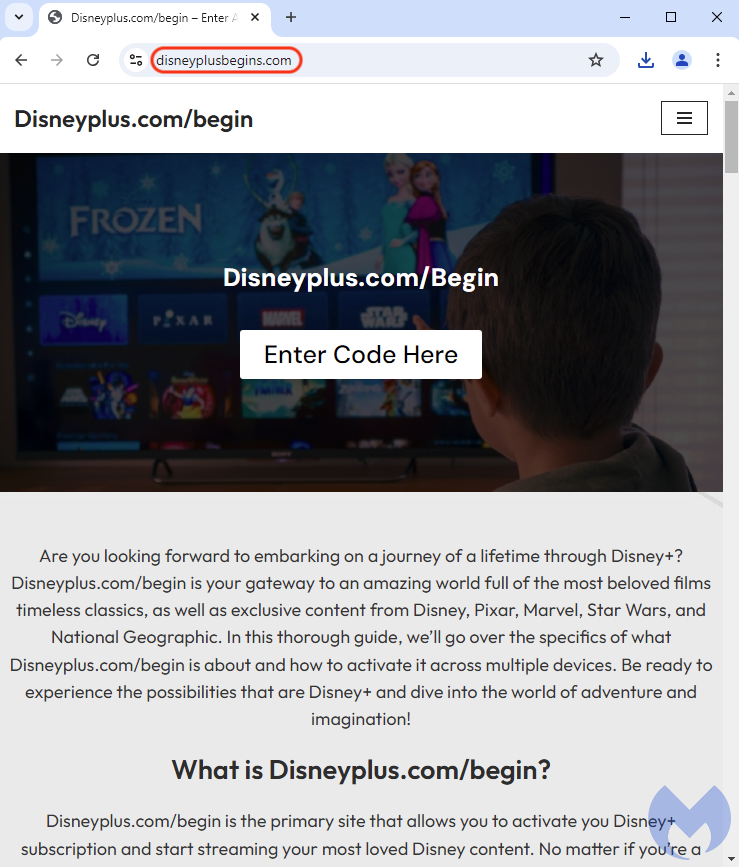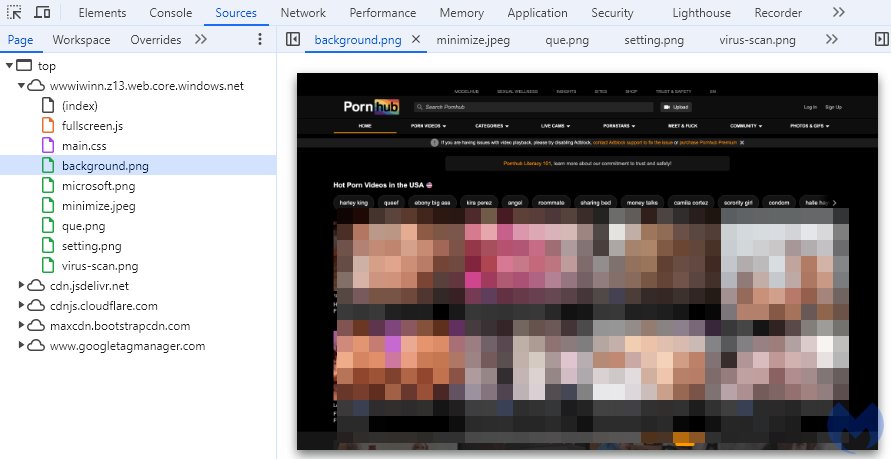A common way to activate digital subscriptions such as Netflix, Prime or Disney+ on a new TV is to visit a website and enter the code seen on your screen. It’s much easier than having to authenticate using a remote and typing a username and password.
Scammers are creating fake activation pages that they get indexed in Google to lure in victims. Once someone goes to one of these pages, they are redirected to a fake Microsoft scanner that claims child abuse imagery was found on their computer.
Getting from the family-friendly Disney activation page to a very graphic alert is sure to get many victims to panic, even if they have done absolutely nothing wrong. You can see what this scheme looks like in the animation below:

Malicious Google search results
The scammers are using Search Engine Optimization (SEO) techniques to place their fraudulent sites on Google’s search results page. Unlike what we have seen before, these are not malicious ads but rather organic search results.
One of the fake websites, disneyplusbegins[.]com, is a play off the official website, which can be seen when you do a Google search for ‘disney plus begin’:

Clicking on the link will take you to the aforementioned fake site that appears to prompt users to enter their code:

When interacting with the page, victims are automatically redirected to another site hosted on Microsoft Azure. A fake Windows Defender scanner claims that “Access to this PC has been blocked for security reasons. Alureon Spyware With Child Pornography Download Detected“:

The page contains a background image with pornographic material, as if it were from sites victims may have visited:

Despite the scary warning page, this is all a scam and you do not need to call the phone number shown on screen. Scammers are waiting for people to call in so they can impersonate Microsoft, remotely log into your computer and either make you send them money or steal directly from your bank account.
Safety tips
Visiting a website to activate a new product or service is something we all do at some point. It is easier to quickly type a few keywords into Google rather than entering the full website URL.
However, Google search results can be laced with malicious ads or links to fraudulent pages. If there is a QR code to scan on your TV, you may want to use that instead (with caution) or maybe spend the extra few seconds it takes to type the full URL (making sure you don’t typo it!).
Finally, just know that these fake warning pages are just that, fake. You can simply close them down by clicking on the ‘X’ at the top right. One thing to be careful about is avoiding clicking anywhere else on the page, in particular buttons or images that may say something like “return to safety”. For more practical tips, check out this article on CNBC, in particular the “How to click without getting into online trouble” part.
We don’t just report on threats—we remove them
Cybersecurity risks should never spread beyond a headline. Keep threats off your devices by downloading Malwarebytes today.










